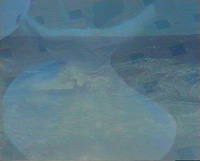 |
Case Study Part 2
|
|
| Home
|
The way of right action Characteristic virtues or excellence of practice; Competence; Living out the ideal divine pattern (the way things are ultimately supposed to be). This can be done while washing dishes, buying fruit, receiving guests, taking a bath. Every moment reveals the possibility of a moment which is “ ultimately supposed to be like that “ . During gatherings at my “church” we practice just that, with everything we do. Awareness to what is already there, which to me brings about an atmosphere of pure, love and brightness the times I have experienced it.. The awareness is stimulated by many exercises, Zikr (remembrance-lit), prayer, breath, and more and little by little is integrated into the daily life, so we start doing our regular “ chores” and become aware of what we are doing (what is in that moment), by remembering our breath at the same time, concentrate on what we are doing and so on. Realistic in touch with concrete obstacles and opportunities. Otherwise the floor gets swapped dirty!! Pro active is our circle in this way that it ventures new horizons, women doing the turn of the Mevlevi (Sema). Balance of finitude and infinitude; Sufis are generally well known for their sublime sense of humor. For sure I wouldn’t have stayed on there if this was not the case. To be passionately committed to the implementation of the divine ideal, without this, seeing how many times one “fails’, would not be possible without humor. Ready to recognize and admit mistakes but confident of the possibility to change and start a new. The school as such led by Reshad Field as the Sheikh, has come from Turkey, to America Vancouver, went from there to the south, changed names and structure several times, went to Switzerland since 1989 had several meeting places and forms and names there. All changes due to the fact that something was going a “wrong way”, constantly shifting to become in tuned again. It’s more the impossibility not to change , than the possibility to change I would say. Concerning, “Mercy and Forgive” , although many of our Friends have left this circle, went to some more orthodox Mevlevi Tariqahs, or founded their own branch, none of them is considered not welcome at “ our” table. In fact many of them still keep in touch. We are taught to give up our walls of “ Resentment, Envy and Pride” and get of the Blame train. It is an ongoing practice as I have discovered, inwardly and outwardly to have mercy and forgive, and start anew. Selflessness; Identified with the welfare of all, from the Sufi point of view this all, is one, welfare of all, means welfare of one, while together we function (more-or less) as a whole. In private life we do our best in the realms we work to act similar. The tombstone of Mevlana Jellalludin Rumi, reveals this message as following;
Come, come, whoever you are , wanderer, worshipper, lover of leaving, it doesn’t matter. Ours is not a caravan of despair. Come even if you have broken your vow a thousand times, Come, yet again, come, come……. Sincere in doing what is right for it’s own sake and free of ulterior motivation, a way of Love, Service and Compassion on the road of Truth meaning Truth comes first, even if it hurts. To find out what Truth is – in one moment- is an ongoing process as well connected to ongoing Moral Growth and improvement. As laid down in the Masnavi, Rumi’s Magnus Opus, the souls growth-process is defined as following: the basic path, like this: 1 The state of an immature man, 2 The awakening, 3 The desires and the quest, after the first three, the others manifest kind of random depending on circumstances both sides are ultimately interconnected and not void of each other as well. (I’ll explain in detail on this personally.) 4 Improvement of the soul through indifference to worldly riches, 5 Love, 6 Devotion and Submission, 7 Bewilderment and need of a spiritual guide, 8 Observation of God in every phenomenon, 9 Unification. Concerning being open to criticism of oneself and one’s projects (group likewise). As I have witnessed the last struggle in the circle concerning the shifting of responsibilities from group leaders in the countries to the participants in the circles itself, I can say that it was a long “battle”, but we struggled through it.. Changing of projects, as a whole, has been done several times. Characteristic vices or degenerations of practice Shadow side of competence: Ready to treat all problems as solvable by bringing individual and communal life into conformity with the divine ideal. One would have to have a very fine understanding of this “divine ideal” to even start doing such as described above. Of course I have witnessed events in the circle, where one or more of our friends, would strive to treat a problem as such. Reshad on the other hand is realistic enough to first inquire whether someone is stable enough (meaning if under guidance of a therapist, this one should be consulted upon coming to (or not) a gathering). I only once saw him ask someone to leave, because she obviously was ‘un reachable” at that time. Doing things with little or no inward centering or reflection. We are a school , so we strive for the opposite, meaning of course that it happens all the time. Cleaning for example is an important part of the teaching, it is often done with little inward centering (our thoughts “run’ away with us), or reflection (merely done in a certain way, because someone says it should be done that way). Incompetence Looking at the changes the circle has gone through, the decisions taken along the way I don’t feel as that all has been a matter of incompetence, lacking courage, indecisive, due to wavering or mixed motivation. But one can say that before decisions are made, before things get done, before one starts to think of changing something all incompetent aspects have been more or less surfacing around in the process. Imbalance: loss of finitude; incognizant of what lies outside one’s frame of reference, the Ultimate reality which the Sufis try to approach as a Unity with the world as we see it, is since we try to approach it, still veiled in many ways. Since one can only work though from within ones own frame of references, based on not knowing the whole, one is destined to “fail”, but always (I hope) ready to recognize one’s own mistakes. Failing to distinguishes one’s own will and plan from divine ideology. A constant nagging question about whether one is guided or not doesn’t seem to work. A regular check up is definitely desirable. A very nice letter from Bruce (a friend in the states) to my teacher led to the following disclosure: “recently I (my teacher) got a letter from Bruce concerning The “ drama’s” , no home, no publisher etc., that beset me just before my 67th birthday. I was, naturally very touched by this concern and felt very humble and warm-in-the-heart. That feeling, however, lasted a very short time indeed. I was studying the 78th Discourse from the Futuh al Ghaib of Abdul Qadir Gilani. These include ten characteristics of those who are engaged in spiritual struggles, when I came to the tenth and the last, which is entirely concerned with humility, it was not difficult at all to come to the conclusion that the sense of humbleness I felt from Bruce’s words were, yet again, veils and traps into which I had fallen. “Let’s say that when a Sheikh at that age and with his experience still finds out about his “mistakes” , that at times we all will be “not ready” to see our own mistakes, the question is more, for how long will they be veiled? Imbalance ; loss of infinitude: legalistic: preoccupied with detail at expense of moral substance, hasn’t seen that strongly within my circle, although I am sure it happens on the ‘lower” planes. As one can notice in the more orthodox Mevlevi Tariqath’s where women are still forbidden to Turn together with men, if at all permitted to join the circle. Egoism: Much about this aspect is more or less discussed before, it is impossible to claim one is void of egoism, the closest I can say I was ever away from my ego was when I was in Holland last time to nurse my dying stepfather. When it comes down to unconcern for others’ need to see for themselves what is right, I must honestly admit that I myself often “battle” with that aspect in my enthusiasm to use my reference as the “right” pair of glasses. Lately I am beginning to learn more about how to adjust to the other persons needs, but I feel like still “failing” lots of times. The way of mystical quest. To know that the two worlds are one; - this reality which we (would be mystics) see as an illusion, created by our minds and the Ultimate Reality. Seeing God in the world and the world in God at the same time!! Characteristic virtues or excellency of practice Competence: Inwardly self-mastered, at-one with oneself, these characteristics are to be viewed as an ongoing process. Actually one cannot say much about the level itself, but experience it as feeling as if competent at a given time. This I have experienced within the circle, the behavior of Friends, my sheikh on more then one occasion. The Turn again as a sublime physical expression of it. Profoundly acquainted with the deeper truths of one’s traditions is also something I can say I have experienced at a couple of times in a very deep and meaningful way. But to claim to posses that acquaintance all the time, I would not dare to do so. After 9 years of practicing meditation I still consider myself not to be skilful, merely a beginner. Although I must admit that at least the breathing meditation seems to integrate itself spontaneously now and then in my day, to day life, smoother (bringing it in-tune) the moment as it occurs. Balance of finitude and infinitude: Passionately in pursuit of enlightenment-direct seeing into, and union with, ultimate reality, that will enable all things to be seen for what they really are. Of course this is a passionate quest, for all involved within our circle. As stated above though I must comment that rarely one is at that station, and if so, never for a long time, and if so, often unable to utter in words what really IS. But to me it is not as black and white as it seems here, there are ‘ stages” of “knowing” and completion in all of that, which are sadly enough rarely to be realized in this life , not one of those stages needs to be better than the other. It depends more on what one does-how one brings it to life-, with a certain stage of knowing. Selflessness; Free of self-pre-occupation, willing to take on spiritual discipline for it’s sake when appropriate. Referring to the example I gave earlier, from my teacher this also is an ongoing process. The freedom from the presumption to “ having arrived” has “merely” infected our minds!! Characteristic vices or degenerations of practice Shadow side of competence: all problems solvable through mystical spiritual disciplines, of course, if in that personal realization-becoming wholly atone with ultimate reality- would be realized, it would seem the answer. Because there –the atone with, lie all the answers to the problems. In between it seems to be only hard (but joyous) work, and here the way we work is as diverse as we are, so no presumptions about ‘our’ disciplines. Apathy towards what lies beyond- the mystical quest-? Is there anything beyond that-ultimately? Incompetence: Not inwardly in touch with oneself, there are many exercises concerning, the Nafs, the lower self (s), making the senses your friends, awakening the subtle centers, chakra’s within oneself and so on. All of that is evidence that one is partly inwardly not in touch with oneself. Imbalance ;loss of finitude: Wholly other- worldly in outlook, to see the World IN God without seeing God In the world, would make one not IN this world. U.G. Krishnamurti 3 describes this state very well, seems to be ever “ confusing” bewilderment for the “subject” at hand as well. Not a desirable state, if one is still “alive”. Imbalance ; loss of infinitude, To see God IN the world, without seeing the World in God, all “highs” whether naturally induced, or induced by natural methods, or induced by mind-altering drugs are “possible’ escape routes from this world, if sought as an end. These states of mind, stations or valleys, Farid ud-din Attar4 are to be crossed, not to be “inhabited”. Egoism: Spiritually elitist; ah, the trap of pride, of feeling chosen, superior through that to others. No true spiritual enlightenment in a deep sense, but merely filling in the gaps with own imaginations to cover the “lacks”. As the Sufis say, if you find a master on the way (one-or you- who claims to be one), kill him immediately!! Concerning The Framework for comparative studies of religion and it’s usefulness. As tried above a possible route for useful in sights. By using it, I have noticed how difficult it is though to step away from postponed judgment, to actually say this or that about a certain aspect. All is so much depending on time, circumstances, inward state of the person involved as well as on the outward presenting of the “way”, that many variables need to be taken in account, before it feels anyway near “valid” to make some kind of judgment. This is one of the reasons I chose to keep this inquiry as close to myself, and my “tradition” as possible. However I think it is a reasonable framework which will be put in good use, as soon as one can get to the stage of postponed judgment at first!! |


